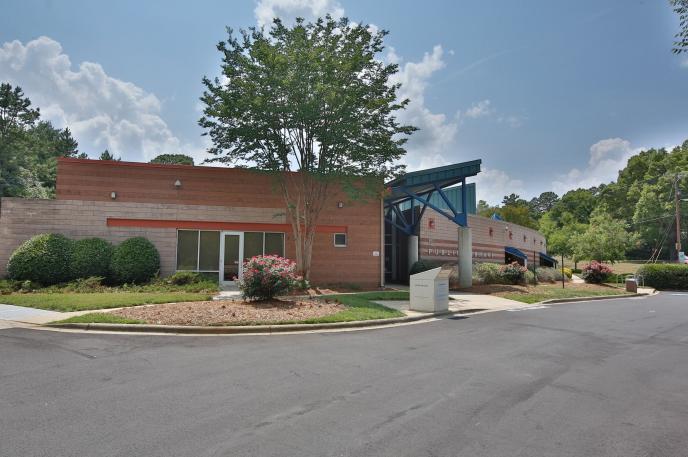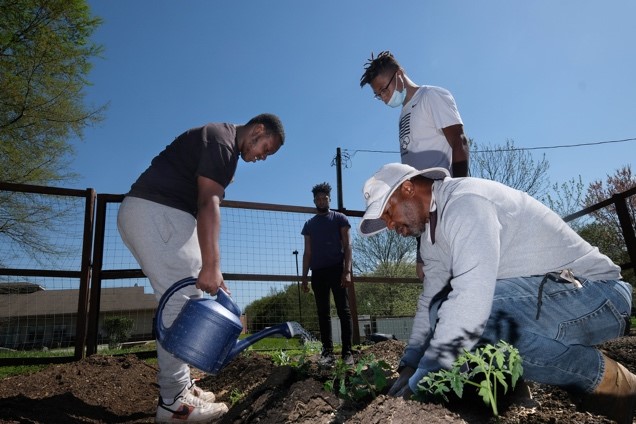David Dillard
Michael Engelbrecht
Jesse Isley
David Sniffin
Holly Summers-Gil
Barbara Cantisano
Services

Get to know the West Boulevard Branch community
March 21, 2023
The West Boulevard Library is conveniently located along the West Boulevard Corridor on the bus line for ease of access. This close-knit community on the westside of Charlotte houses several long established neighborhoods. Serving as a meeting place for its residents, West Boulevard Library is a warm and welcoming community hub. The West Boulevard Branch’s world language collection contains a wide variety of Spanish materials for all ages, along with a sprinkling of other languages. The community looks to the staff of the West Boulevard Library for its digital literacy needs. This Library branch strives to develop and support partnerships with other community resources to enrich the lives of the residents.
Located within a mile of the Library is the Arbor Glen Outreach Facility, home of Clanton Road Community Park and Arbor Glen Recreation Center. The recreation center offers programming and sports for all ages. The park houses basketball courts, play equipment for children and features an outdoor bike playground where kids and adults can practice road biking etiquette.
Another community staple nearby is the Stratford Richardson YMCA. The Stratford Y boasts of innovative programming and hosts seasonal community block parties which give newcomers and longtime residents an opportunity to connect with Library staff and other community organizations.
The West Boulevard Library is a proud partner of the West Boulevard Neighborhood Coalition, a non-profit organization that focuses on improving public health, economic development, and education for the West Boulevard corridor residents.

Make sure to visit the Three Sisters Market across the street from the Library. This community garden was created by the West Boulevard Neighborhood Coalition to meet the grocery needs of the West Boulevard Corridor. Through WNC’s program called Seeds for Change, neighborhood youth are educated on urban farming and leadership development training as they work in the community garden that supplies the Market. At Three Sisters Market, you will find the freshest vegetables in the area and don’t forget to pick up a jar of local honey.
“New to Charlotte? Explore other neighborhoods through the Charlotte Mecklenburg Library blog and WelcomeCLT, a digital space created for newcomers to Charlotte.”
Resources:
- West Boulevard Branch Library – 2157 West Blvd, Charlotte, NC 28208 | 704-416-7400
- Arbor Glen Outreach Facility – 1520 Clanton Rd, Charlotte, NC 28208 | 980-314-1110
- Seeds for Change
- Stratford Richardson YMCA – 1946 West Blvd, Charlotte, NC 28208 | 704-716-4800
- Three Sisters Market
- West Boulevard Neighborhood Coalition – P.O. Box 669755 Charlotte,
NC 28266 | 704-222-1723

What is so special about reading?
March 30, 2023
This blog was written by Alicia Harris, library assistant at South County Regional Library.
Reading allows complex, conceptual thoughts to be understood in a gradual, methodical way. Using narrative, ideas and thoughts are formed in a linear fashion, allowing them to be encoded into memory. It is true that when writing and reading became the mode of communication during Socrates’ time, this “new technology” was criticized, according to author Nicholas Carr in his book, The Shallows: What The Internet Is Doing To Our Brains, for cheapening thought processes that had historically used rote memorization and oration as the means of expression. No longer needing to memorize in order to later recite, it could be said something was lost as many now suggest that heavy use of disruptive media is harming our minds by disallowing deep thought and shortening attention spans. Reading is also restorative and private. It allows one to digest another’s ideas and stories in a dialectical manner, mulling over the assertions or descriptions while perhaps eschewing the finer points. In the process, the imparted knowledge expands perspective and enables linkages to previously read material. Understanding grows more complex and therefore nuanced.

Carr futher goes on to say:
“The contents of our long-term memory lie mainly outside of our consciousness. In order for us to think about something we’ve previously learned or experienced, our brain has to transfer the memory from long-term memory back to working memory. ‘We are only aware that something was stored in long-term memory when it is brought down into working memory,' explains Sweller.”’ It was once assumed that long-term memory served merely as a big warehouse of facts, impressions, and events, that it ‘played little part in complex cognitive processes such as thinking and problem-solving.’ But brain scientists have come to realize that long-term memory is actually the seat of understanding.”
This is why reading may be such a powerful mode to long-term knowledge and understanding. It is in its gradual nature that allows what is being read to be stored. Attention is concentrated and sustained with certain resonant facts and impressions being retained. What one then “knows” is largely in the unconscious until brought into awareness again when challenged or refined by new information. The new knowledge must be reorganized and remapped into what was previously learned, editing out “facts” no longer supported. It is in this editing phase that most highlights the dialectical process that reading promotes and engages the reader and thereby ensures a lasting impression.
